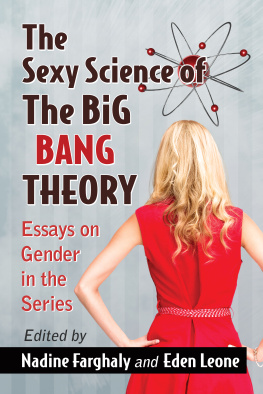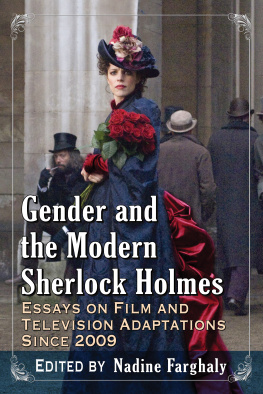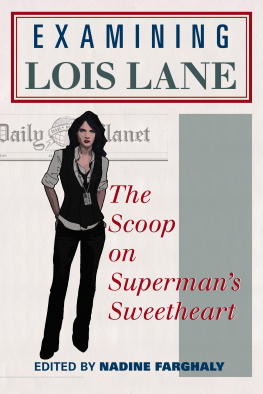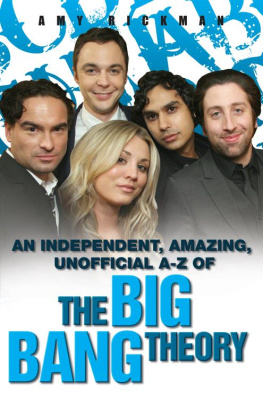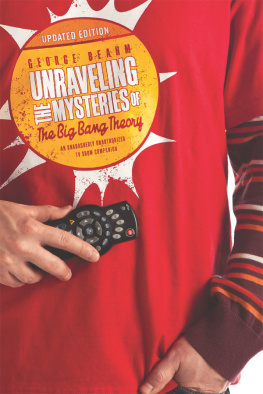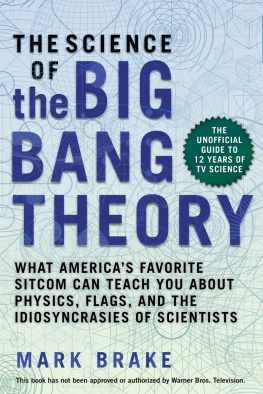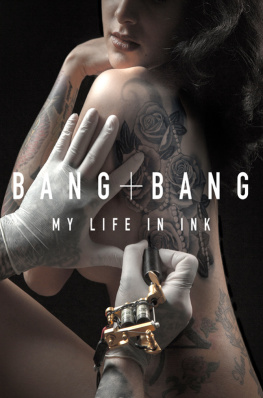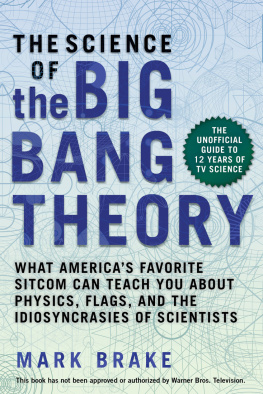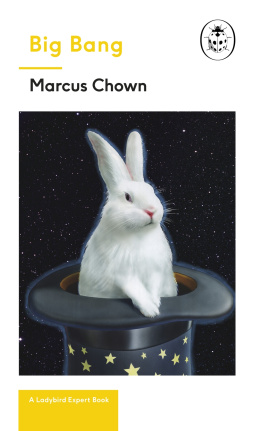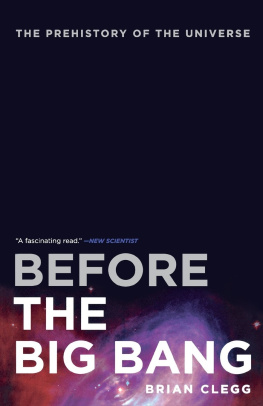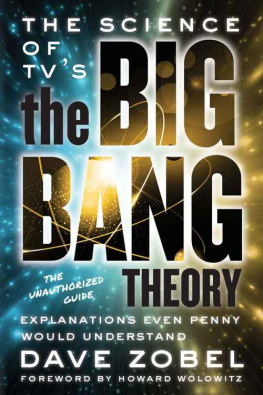
ALSO EDITED BY NADINE FARGHALY
Unraveling Resident Evil: Essays on the Complex
Universe of the Games and Films (McFarland, 2014)
The Sexy Science of The Big Bang Theory
Essays on Gender in the Series
Edited by Nadine Farghaly
and Eden Leone

McFarland & Company, Inc., Publishers
Jefferson, North Carolina
LIBRARY OF CONGRESS CATALOGUING DATA ARE AVAILABLE
BRITISH LIBRARY CATALOGUING DATA ARE AVAILABLE
e-ISBN: 978-1-4766-1948-4
2015 Nadine Farghaly and Eden Leone. All rights reserved
No part of this book may be reproduced or transmitted in any form or by any means, electronic or mechanical, including photocopying or recording, or by any information storage and retrieval system, without permission in writing from the publisher.
Cover images 2015 Hemera/Wavebreak Media/Thinkstock
McFarland & Company, Inc., Publishers
Box 611, Jefferson, North Carolina 28640
www.mcfarlandpub.com
Acknowledgments
This book would have never seen the light of day if it werent for dozens of wonderful people, especially our wonderful contributors. We know that the constant revisions and extra hours you put into this must have been hard; however, our combined work and our countless hours of effort finally paid off in the publication of this collection. Additionally, our thanks to Joe Erickson for proofreading everything so thoroughly. We would also not have been able to complete this project without our loved ones. Thank you all!
Introduction
Nadine Farghaly and
Eden Leone
Knock knock knock, Penny! Knock knock knock, Penny! Knock knock knock, Penny! This utterance has been printed on mugs, t-shirts, posters, and many other Big Bang Theoryrelated items, and it has become a repeated as well as a trusted source of entertainment on the CBS hit show featuring Penny, Sheldon, and Leonard, who have become one of TVs most popular threesomes. The smart and funny combination of geeky male protagonists with a pretty, perky female protagonist has been very successful so far. Although the series needed a second pilot to be picked up by the network, it has been going strong since 2007 (Lorre) and it has been steadily making its way up from an original 13-episode starter in season one to one of CBSs biggest hits. According to Forbes magazine, the advertising revenue per half hour is $2.57 million. Since its creation The Big Bang Theory has captured a steady viewership of nearly 17 million. After the first four seasons the network added an additional three without hesitation and recently renewed the show until 2017. It is more popular than ever before and we want to know why. Does the shows popularity stem from its quirky but loveable characters? Can it be attributed to the clever mixture of science and popular culture? Is it really true that smart is the new sexy? Some of these questions will be answered in this collection, and other questions will probably arise. This collection set out to offer a comprehensive reading of The Big Bang Theory in connection to gender and popular culture. We strove to create a well-rounded work that not only helps the audience understand the themes addressed in this show, but also to engage them in an intellectual and meaningful conversation in something they might not have taken as seriously before.
After all, despite its fun, The Big Bang Theory is not merely a show about two scientists living across the hall from a waitress/aspiring actress. This show can be used as a lens through which to look at and understand society. As could be said of almost anything discussed in popular culture, one should never make the mistake of saying that a sitcom is not intellectual enough to tell us anything important about our society or ourselves. On the contrary, if one sees popular culture as a lens through which to view highly sophisticated topics such as genetic modifications addressed by a layman, one understands why it should never be disregarded. Popular culture, like nothing else, is able to make complex themes and ideas accessible to everyone. Shakespeare did not belong to highbrow culture when he wrote his poems and plays; he wrote for the masses. Granted, he was sponsored by the Lord Chamberlains Men, patronized by James I, but his primary audience consisted of all sorts of people, including the lower classes. We are not trying to say that The Big Bang Theory will one day be as admired as Shakespeares works; however, it should not be disregarded just because it is not now. It tackles highly interesting topics such as sexuality (asexuality, homosexuality, queerness, etc.), family, friendship, education, marginalization, and fandom, to name but a few.
As a result, while there are many aspects that make the show a success, there are certain aspects that need to be addressed since the presentation of the characters often is problematic. Throughout its run the show has demonstrated a remarkable capability to reduce women to pretty bedfellows who do not necessarily need a brain or self-esteem; Howard and Raj especially make a point of using (or trying to use) women for sexual gratification and nothing else. Penny, who is also the only character who apparently does not deserve a last name, and her naivete in the first few seasons was hard for many viewers to stomach, and it wasnt until the introduction of Amy Farrah Fowler and Bernadette Rostenkowski that the cast was equipped with long-term female characters whose functions were not as eye candy or sex objects. And, even these characters are problematic. Though she has a Ph.D. and a fabulous job, Bernadette is often portrayed as a stereotypical dumb blonde, who, together with her co-workers, creates super viruses which they then lose track of (The Desperation Emanation, 4x05) and consumes Jell-O shots from petri dishes that were contaminated with yellow fever (The Justice League Recombination, 4x11). It often seems women cannot be pretty and intelligent without being punished for it with some unbelievable character flaw. In the same vein, Amys continued sexual harassment (yes, we are calling it that) of Penny stopped being entertaining several seasons ago, and it finally ended during the last season, coincidentally around the same time Sheldon became a viable possible sexual partner. It is still important to remember all the times Penny was confronted with Amys not-so-subtle sexual comments; consider when the portrait she had commissioned was originally a nude portrayal of the two women (The Rothman Disintegration, 5x17), or when she says that Bernadettes bridal shower ought to include naked bridesmaids washing each other, or when she gets the idea that the bachelorette party should embrace the idea of a Native American sweat lodge where women dance around and paint fertility symbols on the brides naked body (The Isolation Permutation, 5x08). Amys continued inappropriate remarks about Pennys body are a constant throughout seasons five and six, but are toned down in season seven.
Another aspect of the show that was entertaining at first is Pennys drinking, which seemed to have gotten out of hand as several episodes in season five demonstrate. The producers reined in this behavior during the last season, and they recently addressed the matter directly. In the The Locomotive Manipulation the group discusses what the couples are planning for Valentines Day. When Bernadette proposes that Leonard and Penny join the other two couples on their trip to Napa, Leonard quickly states, Im not sure its such a great idea to take Penny to where wine comes from. When Penny, holding a big glass of red wine, looks less than amused, Leonard just quips: What? Its a joke. Come on, we bust on each other! I wear dorky glasses, you might have a problemits all for laughs. Penny retorts: Thatd really piss me off if I didnt have a buzz going on (The Locomotive Manipulation, 7x15). While the situation is meant to be funny, one cannot help but wonder if Penny really is fine or if she does have a problem with alcohol. While the show demonstrated an uncanny sensibility to its viewers needs, and the ability to capture its attention episode after episode, one has to wonder about the negative portrayal of women in the shows long-term cast members. To be fair, it should be acknowledged that the male characters make equally dumb mistakes, whether it be Leonard and Howard doing almost anything to please women, like bringing home top secret weaponry (The Staircase Implementation, 3x22) or letting a date drive the Mars rover (The Lizard-Spock Expansion, 2x08). This collection will not answer all the questions one might have about
Next page
